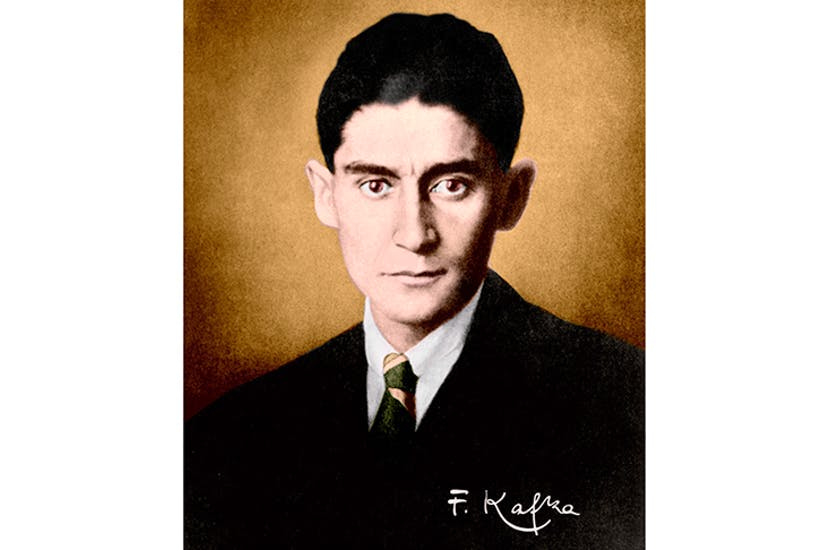Social distancing? I've been doing it all my life. O beata solitudo, sola beatitudo! Happy solitude, the sole beatitude. How sweet it is, and made sweeter still by a little socializing. Socializing is like whisky. A little is good, but more is not better.
Full lockdown? I could easily take it, and put it to good use. It provides an excellent excuse to avoid meaningless socializing with its empty and idle talk.
Franz Kafka: The Diaries 1910-1923, ed. Max Brod, Schocken 1948, p. 199:
In the next room my mother is entertaining the L. couple. They are talking about vermin and corns. (Mrs. L. has six corns on each toe.) It is easy to see that there is no real progress made in conversations of this sort. It is information that will be forgotten again by both and that even now proceeds along in self-forgetfulness without any sense of responsibility.
I have read this passage many times, and what delights me each time is the droll understatement of it: "there is no real progress made in conversations of this sort." No indeed. There is no progress because the conversations are not seriously about anything worth talking about. There is no Verantwortlichkeit (responsibility): the talk does not answer (antworten) to anything real in the world or anything real in the interlocutors. It is jaw-flapping for its own sake, mere linguistic behavior which, if it conveys anything, conveys: ‘I like you, you like me, and everything’s fine.’
The interlocutors float along in the inauthenticity (Uneigentlichkeit) of what Martin Heidegger calls das Man, the ‘they self.’ See Heidegger’s analysis of idle talk (Gerede) in Sein und Zeit (1927), sec. 35.
Am I suggesting that one should absolutely avoid idle talk? That would be to take things to an unnecessary and imprudent extreme. It is prudent to get yourself perceived as a regular guy — especially if you are an 'irregular guy.'
Ganz man selbst sein, kann man nur wenn man allein ist. (Schopenhauer, Parerga und Paralipomena) "Only when one is alone can one be entirely oneself."
I wouldn't make a very good socialist.
The introvert comes most fully into his own and most deeply savors his psychological good fortune in old age, as Albert Einstein attests in "Self-Portrait" in Out of My Later Years (Citadel Press, 1956), p. 5: “. . . For the most part I do the thing which my own nature drives me to do. It is embarrassing to earn so much respect and love for it. Arrows of hate have been shot at me too; but they never hit me, because somehow they belonged to another world, with which I have no connection whatsoever. I live in that solitude which is painful in youth, but delicious in the years of maturity.”


